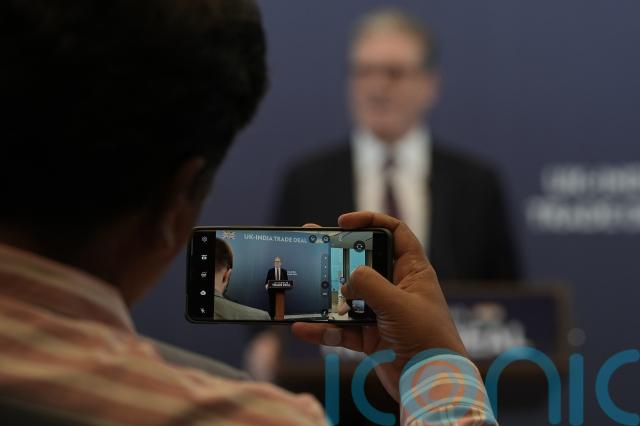
Sir Keir Starmer signalled that digital ID could be used for banking as he called for a “national debate” on its scope amid a wave of opposition to the scheme.
The Prime Minister insisted the system had “huge benefits” which he said his Government must “make the case for”, after polls suggested public support for the proposals had plummeted.
Sir Keir is seeking to expand his plans for use of the technology, which ministers had said would be used primarily to tackle illegal working in the UK, to include managing public services like benefits and bills payments.
Speaking during a visit to Mumbai on Thursday, he pointed to other countries like Estonia and India, where the system is used for banking, in arguing its introduction could make people’s lives easier.
“You could see from Estonia the speed with which people access services that are available to them, which has been transformational. And there’s great enthusiasm in Estonia for it,” he said.
“Here in India, I think it’s a billion people have digital ID. It’s been taken up on a voluntary basis in huge numbers, not least because it means that you can access your own money, make payments so much more easily than is available with others.
“So, I think now we need to go out and make that case of the huge benefits that this will bring. There needs to be a national debate about it.”
More than 2.8 million people have signed a petition against the measures and net support for digital ID cards fell from 35% in the early summer to -14% after Sir Keir’s announcement, according to polling by More in Common.
Sir Keir said he believed that “the more people see the benefits that come with this, the more, as has happened in other countries, people say that will make my life easier, and therefore I want to get on with it.”

The Prime Minister announced in September that digital ID would be introduced by 2029, and would be mandatory for people working in the UK as part of a bid to tackle illegal migration.
Under the original mandatory scheme, photo IDs would be stored on phones in a similar way to digital bank cards and would contain information on the holder’s name, residency status, date of birth and nationality.
During his visit to India, Sir Keir suggested he wants to move beyond the current plans to offer a voluntary national ID which could help manage other services.
He praised New Delhi’s voluntary digital ID system, Aadhaar, which is far more extensive than the plans initially announced by the UK and involves the storing of biometric data, as a “massive success”.
He also met Nandan Nilekani, a founder of major tech company Infosys who left the firm in 2006 to help set up Aadhar, to discuss the scheme.
No 10 said Britain’s system would not necessarily copy India’s biometric data usage, but that the meeting had given him a chance to hear about how the Indian system had been “useful” for managing services such as welfare.
The private sector has also managed to “dock” into India’s system, the spokesman said, but signalled a UK system would be run by the public sector, the Prime Minister’s official spokesman said.
Subscribe or register today to discover more from DonegalLive.ie
Buy the e-paper of the Donegal Democrat, Donegal People's Press, Donegal Post and Inish Times here for instant access to Donegal's premier news titles.
Keep up with the latest news from Donegal with our daily newsletter featuring the most important stories of the day delivered to your inbox every evening at 5pm.